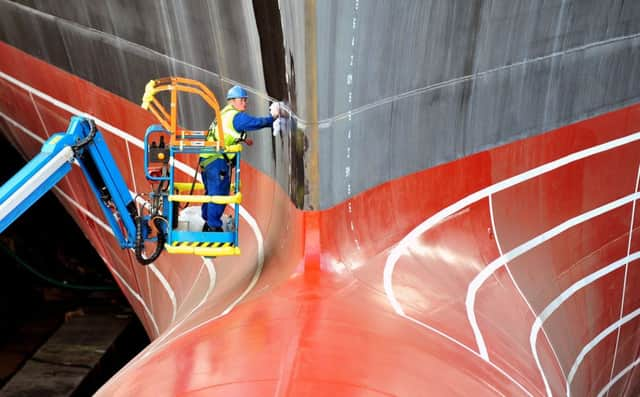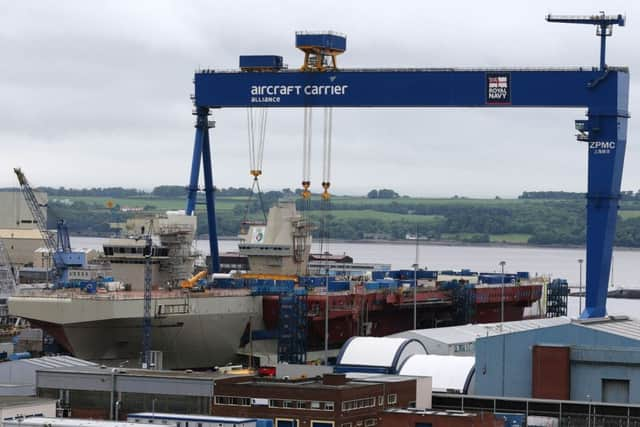Build auxiliary naval ships in Rosyth to protect Scots jobs, says MP


Pressure is growing on the Ministry of Defence (MoD) to ensure the new vessels, known as fleet solid support ships, are not built abroad.
As the MoD has classed them as “non-combatant” ships they are not protected by the same rules which ensured two new aircraft carriers were constructed in the UK.
Advertisement
Hide AdAdvertisement
Hide AdLabour MP Paul Sweeney told The Scotsman that Roysth was the only British yard capable of building large-beam vessels wider than 20 metres - with the fleet solid support ships measuring 29m.


The facility in Fife, which is owned by Babcock, was used for the final assembly of HMS Queen Elizabeth and HMS Prince of Wales, the largest warships ever built in the UK.
With work on the carriers now almost complete there are fears skilled jobs at Rosyth could be lost if further contracts are not secured in the short term.
“In the context of major shipyard closures and significant downsizing, whether that is at Rosyth or Appledore, it is bizarre that the Government are quite happy to tender contracts overseas in international open competition,” Mr Sweeney, MP for Glasgow North East, said.
He added: “The current Royal Navy shipbuilding capacity plan for 2020 to 2040 shows a large UK ship-construction gap, primarily focused on Rosyth, which will have a 15-year gap in work between the completion of the HMS Prince of Wales and the first refit of the Queen Elizabeth.
“It is the only facility in the UK that is currently capable of building large-beam vessels wider than 20 metres. The new fleet solid support vessels are 29.5 metre, so to ensure that the pipeline of capability is maintained in the UK, we must build the FSS in the UK.”
The MOD confirmed in November last year that five bidders were in the running for the fleet solid support ship constract. The sole UK consortium includes Babcock, BAE Systems, Cammell Laird and Rolls-Royce.
Save the Royal Navy, an online campaign platform which focuses on UK maritime defence issues, claimed Rosyth was the “obvious” site for the auxilliary vessels to be constructed.
Advertisement
Hide AdAdvertisement
Hide Ad“It would be a very poor strategic choice to rely purely on foreign suppliers for our defence needs,” it said.
Gerald Vernon-Jackson, leader of Portsmouth City Council, said there was a clear level of concern among industry executives following a conference with maritime chiefs in the city last month.
“The decision to not ring-fence the construction of the three new RFA ships to be built in British yards is a significant problem and one that is incredibly concerning,” he told the Portsmouth News this week.
“These are highly complex ships carrying quantities of munitions, so they have to be very powerfully built, and be able to be in a war zone and yet the government are choosing to probably allow them to be built in Spain.”
An MoD spokesman said they were ‘required by law to procure’ the three fleet solid support ships ‘through open international competition’. He added: ‘The competition began in 2018 and there are currently five potential bids, including one from a UK consortium.’
A final decision on the winning bid will be made next year.
